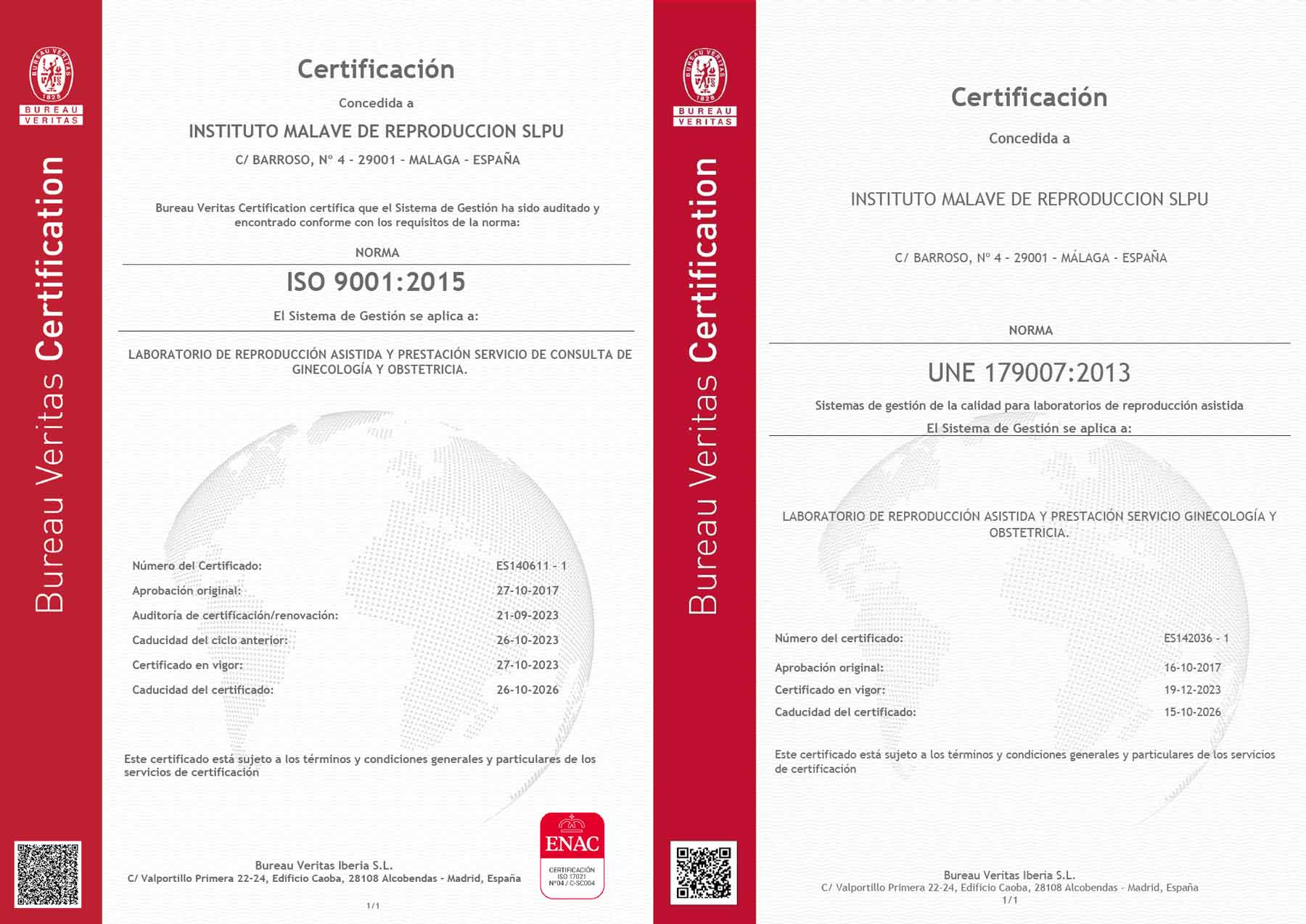Recurrent Pregnancy LossWhat is Recurrent Pregnancy Loss? of Pregnancy
Recurrent pregnancy loss or repeat miscarriage is defined as a condition in which a woman has 2 or more spontaneous pregnancy losses.
There are several criteria for defining repeat miscarriage. Some consider clinical (confirmed by ultrasound) and biochemical (detected only by pregnancy test) pregnancy losses; others consider only clinical pregnancy losses to make the diagnosis.
What are the causes of recurrent pregnancy losses?
There are a variety of reasons why a woman may have more than one miscarriage.
Maternal age plays a key role in reproductive capacity. From the age of 35 onwards, the probability of pregnancy is significantly lower.
Genetic causes:
Many miscarriages that occur during the first trimester are due to genetic abnormalities in the embryo. The age of the woman influences the risk of miscarriage due to chromosomal abnormalities. This increases from 10% to 15% in women under 35 years of age and can increase to more than 50% in women over 40.
Anatomical causes:
The abnormal shape of a woman's uterus can be a cause of pregnancy loss. Examination of the cavity for congenital malformations, synechiae or fibroids is recommended.
Medical causes:
Medical causes can be listed according to the factor that causes them. Thus, we can differentiate between:
- Endocrine disorders. Thyroid function (TSH and anti-thyroid antibodies), diabetes, insulin resistance and untreated obesity can cause recurrent pregnancy loss.
- Abnormalities of the autoimmune system or the blood coagulation system (thrombophilias)
- Immunological factors: -The immune system plays a key role in pregnancy. Maternal tolerance may be altered and jeopardise the development of the embryo. Alterations in the mother's protective immune response could lead to miscarriage.
- Antiphospholipid syndrome: is an autoimmune disorder caused by the presence of antibodies (anti-phospholipid antibodies) that interfere with clotting. It is the only non-genetic cause that has been shown to cause recurrent pregnancy loss.
Diagnosis and treatment of repeat abortion
*Karyotype in peripheral blood: The analysis of the karyotype of each member of the couple makes it possible to determine chromosomal abnormalities in the number or genetic structure of the chromosomes.
Preimplantation genetic diagnosis (PGD) is recommended for couples with Robertsonian or reciprocal translocations in their karyotypes.
*Study of congenital thrombophilias: These mainly include factor V Leiden mutations, prothrombin gene mutation and MTHFR gene mutations. Treatment of patients affected by congenital thrombophilia with LMWH may improve reproductive prognosis.
*The detection of TSH values in patients with a history of previous miscarriages would be recommended as part of the basic study, as well as their treatment in the event of a new pregnancy.
*Study of Antiphospholipid Syndrome: Diagnosis of HFS requires positivity in two separate determinations within 12 weeks for circulating antiphospholipid antibodies: lupus anticoagulant, anticardiolipin antibodies and anti-B2 glycoprotein-I antibodies. Combined treatment with ASA and LMWH at prophylactic doses clearly reduces the risk of miscarriage.
*Assessment of the uterine cavity: Hysteroscopy, ultrasound and hysterosalpingography are the tests used to detect uterine abnormalities. The aim is to properly assess the uterine contour both internally and externally.
Treatment with lateral and fundal metroplasty can reduce the risk of recurrent miscarriages.
*Immunological study is recommended for patients in whom genetic, anatomical, endocrine and autoimmune causes have been ruled out.
The diagnosis of these problems involves a battery of tests, blood tests, where antibodies related to gestational problems are ruled out. The immune system, inflammatory status and HLA-C incompatibility are observed.
Dr. Silvia Sánchez Ramón is a pioneer in the field of Reproductive Immunology. Her team of clinical immunologists diagnoses and treats the immunological factors involved in the process of human reproduction.


